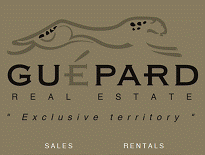Romania : Government
Romania Government Profile 2012
The constitution of 1948 established Romania as a Communist state. In 1989 the Communist government was overthrown and an interim government was formed. The new government abolished the Communist party's monopoly on political power.
In 1991 a new constitution, making Romania a parliamentary democracy, was approved in a nationwide vote. Legislative power is vested in a bicameral parliament, made up of the Chamber of Deputies and the Senate. The president, who is the head of state, is elected by popular vote. The prime minister, who is the head of government, is appointed by the president with the approval of parliament.
republic
41 counties (judete, singular - judet) and 1 municipality* (municipiu); Alba, Arad, Arges, Bacau, Bihor, Bistrita-Nasaud, Botosani, Braila, Brasov, Bucuresti (Bucharest)*, Buzau, Calarasi, Caras-Severin, Cluj, Constanta, Covasna, Dimbovita, Dolj, Galati, Gorj, Giurgiu, Harghita, Hunedoara, Ialomita, Iasi, Ilfov, Maramures, Mehedinti, Mures, Neamt, Olt, Prahova, Salaj, Satu Mare, Sibiu, Suceava, Teleorman, Timis, Tulcea, Vaslui, Vilcea, Vrancea
9 May 1877 (independence proclaimed from the Ottoman Empire; independence recognized 13 July 1878 by the Treaty of Berlin); 26 March 1881 (kingdom proclaimed); 30 December 1947 (republic proclaimed)
Unification Day (of Romania and Transylvania), 1 December (1918)
8 December 1991; revised 29 October 2003
based on civil law system; has not accepted compulsory ICJ jurisdiction
18 years of age; universal
bicameral Parliament or Parlament consists of the Senate or Senat (137 seats; members elected by popular vote in a mixed electoral system to serve four-year terms) and the Chamber of Deputies or Camera Deputatilor (334 seats; members elected by popular vote in a mixed electoral system to serve four-year terms) elections: Senate - last held on 30 November 2008 (next expected to be held in November 2012); Chamber of Deputies - last held on 30 November 2008 (next expected to be held in November 2012) election results: Senate - percent of vote by alliance/party - PSD-PC 34.2%, PD-L 33.6%, PNL 18.7%, UDMR 6.4%, other 7.1%; seats by alliance/party - PSD-PC 49, PD-L 51, PNL 28, UDMR 9; Chamber of Deputies - percent of vote by alliance/party - PSD-PC 33.1%, PD-L 32.4%, PNL 18.6%, UDMR 6.2%, ethnic minorities 3.6%, other 6.1%; seats by alliance/party - PD-L 115, PSD-PC 114, PNL 65, UDMR 22, ethnic minorities 18
Supreme Court of Justice (comprised of 11 judges appointed for three-year terms by the president in consultation with the Superior Council of Magistrates, which is comprised of the minister of justice, the prosecutor general, two civil society representatives appointed by the Senate, and 14 judges and prosecutors elected by their peers); a separate body, the Constitutional Court, validates elections and makes decisions regarding the constitutionality of laws, treaties, ordinances, and internal rules of the Parliament; it is comprised of nine members serving nine-year terms, with three members each appointed by the president, the Senate, and the Chamber of Deputies
Conservative Party or PC [Daniela POPA] (formerly Humanist Party or PUR); Democratic Liberal Party or PD-L [Emil BOC]; Democratic Union of Hungarians in Romania or UDMR [Bela MARKO]; National Liberal Party or PNL [Crin ANTONESCU]; Social Democratic Party or PSD [Mircea Dan GEOANA] (formerly Party of Social Democracy in Romania or PDSR)
other: various human rights and professional associations
Australia Group, BIS, BSEC, CE, CEI, EAPC, EBRD, EIB, ESA (cooperating state), EU, FAO, G-9, IAEA, IBRD, ICAO, ICC, ICCt, ICRM, IDA, IFAD, IFC, IFRCS, IHO, ILO, IMF, IMO, IMSO, Interpol, IOC, IOM, IPU, ISO, ITSO, ITU, ITUC, LAIA (observer), MIGA, MONUC, NATO, NSG, OAS (observer), OIF, OPCW, OSCE, PCA, SECI, UN, UNCTAD, UNESCO, UNHCR, UNIDO, Union Latina, UNMIL, UNMIS, UNOCI, UNWTO, UPU, WCO, WFTU, WHO, WIPO, WMO, WTO, ZC
three equal vertical bands of blue (hoist side), yellow, and red; the three colors were used by various national revolutionary movements in the 19th century; the national coat of arms that used to be centered in the yellow band has been removed note: now similar to the flag of Chad, whose blue band is darker; also resembles the flags of Andorra and Moldova






















